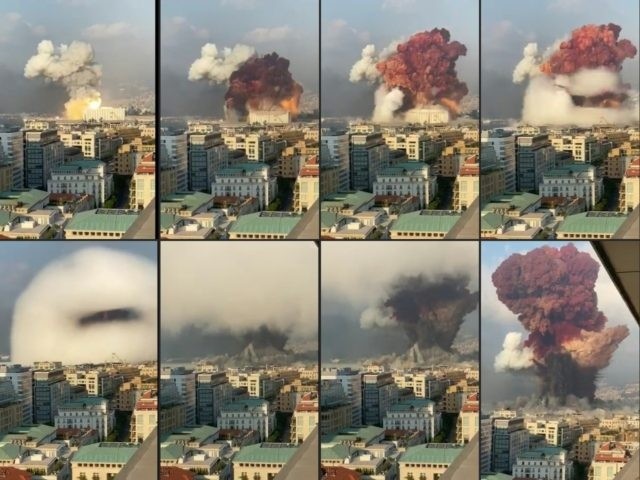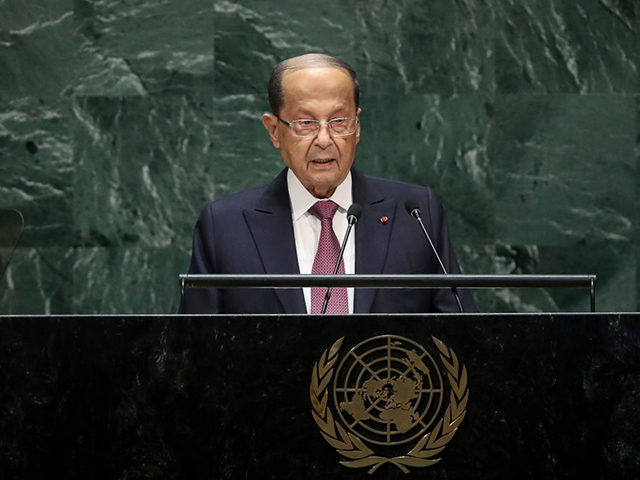89-year-old Michel Aoun, president of Lebanon since 2016, vacated his office on Sunday with no successor standing by. Aoun’s departure leaves the country in even more turmoil, as one of his final acts was accepting the resignation of interim Prime Minister Najib Mikati’s government.
Voice of America News (VOA) pointed out that Mikati’s government is still there even though it formally resigned, and so is Mikati, despite calls from the political opposition to step aside.
Mikati said on Sunday he would not convene caretaker cabinet meetings unless there is an emergency. He added he was confident none of the ministers would boycott a cabinet session if he decides to call one.
Aoun and Mikati did not part on friendly terms, as the Times of Israel reported:
Aoun told parliament in a letter that Mikati was “uninterested” in forming a new government to deal with Lebanon’s myriad problems and called on him to resign.
Mikati retorted that Aoun’s decision had “no constitutional basis” and that his cabinet will “continue to carry out all its constitutional duties, including its caretaker functions.”
Constitutional expert Wissam Lahham said that “what Aoun is doing is unprecedented” since Lebanon adopted its constitution in 1926.
Under Lebanese law, a resigned government continues in a caretaker role until a new one is formed, Lahham said, describing Aoun’s decree as “meaningless.”
Some of the loudest calls for Mikati’s resignation are coming from Hezbollah ally Gebran Bassil, who happens to be Aoun’s son-in-law.
Aoun left office to cheers from supporters and snarls from critics, who seemed roughly equal in number. Lebanon’s presidency is reserved for Christians only – the prime minister must be a Sunni Muslim and the head of the legislature must be a Shiite Muslim under Lebanon’s three-way factional power balancing system. Aoun was celebrated as an effective defender of their interests by most of Lebanon’s Maronite Christians, some of whom pleaded with him to remain in office.
Aoun’s critics, on the other hand, blame him for ceding too much influence to the Iran-backed Shiite terrorist organization and political party Hezbollah. Aoun’s term was defined by two cataclysmic debacles, the financial meltdown of 2019 and the terrifying Beirut port explosion of 2020.

Lebanon on Wednesday marked a year since a cataclysmic explosion ravaged Beirut, with a mix of grief over lost lives and rage at the impunity for its worst peacetime disaster at a time when its economy was already in tatters. (AFP)
Aoun said in media interviews shortly before his departure that he felt the Lebanese presidency was too weak to address the many problems paralyzing the nation, from poverty and economic paralysis to huge stockpiles of explosive chemicals rotting away in forgotten warehouses. Thousands of cheering supporters gathered for his departure, not-so-subtly signaling that Aoun still has power, should he choose to use it.
“We have come to escort the president at the end of his mandate, to tell him that we are with him and that we will continue the struggle by his side,” declared a supporter quoted by the Times of Israel.
The Lebanese parliament has made four attempts over the past year to replace Aoun, without success. Mikati has been struggling to form a stable government for the past six months. Lebanon has never been saddled with both a caretaker cabinet and presidential vacancy before.
“Lebanon is a boat that’s sinking and no one is at the helm. This is about the usual wrangling over who gets the bigger piece of the pie,” Sami Atallah, founding director of a Beirut-based think tank called The Policy Initiative, told the Financial Times on Monday.
Atallah predicted it could take months for the paralyzed Lebanese political system to produce a new president, which is very bad news for a country with 95 percent currency devaluation, banks that refuse to give depositors their money, a jittery International Monetary Fund (IMF) having second thoughts about a proposed bailout package and a growing cholera epidemic.
“Any president that comes will either be there because he’s supported by one group or because he’s conceded something to someone else. Whoever comes in will be handcuffed to whatever interests he has to serve,” Atallah glumly anticipated.
The Financial Times suggested some Lebanese factions actively wish to keep the presidency vacant, the government nonfunctional, and the IMF nervous because they expect the landmark maritime boundary deal Aoun finalized with Israel last week to flood Lebanon with gas and oil money, which will be speedily devoured by the usual political predators.

COMMENTS
Please let us know if you're having issues with commenting.